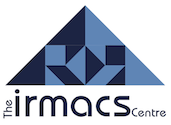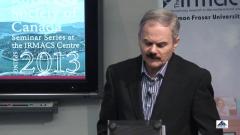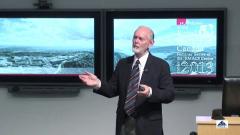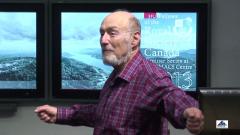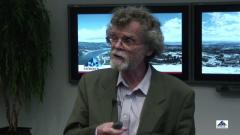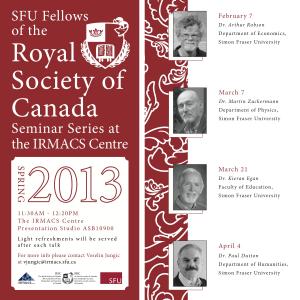Plato believed that human society had been nearly wiped out at several points in the distant past, and that the few survivors who rebuilt their worlds had forgotten their deepest histories. The Timaeus, the work in which this doctrine is most fully explained, was one of the few dialogues that circulated in the Middle Ages, but what did catastrophism mean to medieval men and women? Why were they so uninterested in the story of the destruction of the island-continent of Atlantis and we moderns so fascinated by it?
SFU Royal Society of Canada Seminar Series
The Royal Society of Canada Seminar Series provides an opportunity to the wider research community to learn more about the current research interests of SFU Royal Society of Canada scholars. These talks are non-technical in order to provide broad access to Canada's highest level of knowledge. The table below lists the upcoming Royal Society of Canada Seminars at the IRMACS Centre.
If you want to view video archives from other events held at the IRMACS Centre, please visit the IRMACS Video Archive page.
Past Presentations
Thursday, April 4, 2013
Thursday, March 21, 2013
The Learning in Depth (LiD) program was introduced into a couple of local schools in 2009. Since then it has spread to many schools around the world, and also to colleges and universities. The program is simple to implement and somewhat radical and is designed to ensure that all students will become expert on some limited area of knowledge to a degree that has not been a part of any educational program in the past. The talk will describe the program, discuss potential problems with it and potential solutions to those problems, and invite participants to contribute to it, or to its demise.
Thursday, March 7, 2013
Biological molecular nano-motors are MECHANO-ENZYMES which function by transducing chemical energy, often via the hydrolysis of ATP, to mechanical energy. They are key components of a large number of cellular processes such as cell division, cell motility and intracellular transport. First, I will give a brief summary of the properties of bipedal (biological) stepping motors. Following this, I will concentrate on our research work whose main objective is TO DESIGN, SYNTHESIZE AND MEASURE THE PERFORMANCE OF THE WORLD'S FIRST PROTEIN-BASED MOTORS. By applying this bottom-up approach, we test our understanding of structure-function...
Thursday, February 7, 2013
Why did evolution not give us a utility function that is offspring alone? Why do we care intrinsically about food, for example? We answer these questions on the basis of informational asymmetries. On the one hand, there has been a long evolutionary history establishing that food is advantageous. On the other, individuals possess local information that is highly relevant---where food is located, for instance. If Nature shapes utility to embed the evolutionary knowlege that food is desirable and the individual maximizes expected utility conditional on local information, the optimal choice can be attained.

